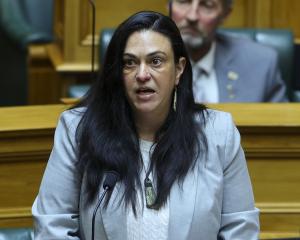Prime Minister John Key is confident he will manage to secure a solid commitment to phase out trade tariffs with Thailand earlier than expected.
After his formal meeting with Thai Prime Minister Yingluck Shinawatra, the leaders agreed to start working on changes to the trade agreement between the two countries before the end of 2014. Currently, the tariffs are due to phase out completely by 2020 but Mr Key is pushing for that to be brought forward.
The trade talks between the two prime ministers were held against a backdrop of protests. Thousands of anti-government protesters have returned to the streets of Bangkok, prompting concerns Thailand is in for more instability.
Media reports from Thailand say the protesters are furious Prime Minister Yingluck tried, but failed, to pass laws which may have allowed the return of her exiled brother and former leader Thaksin Shinawatra.
Mr Key's trip was all about growing trade opportunities for New Zealand exporters, many of whom accompanied the Prime Minister on his trip. Representatives from 22 companies were with Mr Key.
Thailand is an important market for New Zealand because, although the economy grew at a slower-than-expected pace in the three months ended September on an annual basis, gross domestic product (GDP) expanded at 2.7% in September.
While weaker than the adjusted 2.9% in the June quarter, economic growth in Thailand is substantially greater than many other of New Zealand's trading partners.
The risk is, however, data showing the Government cutting its forecast for the year as analysts warn political turmoil could inflict further damage to the economy. And economic growth in Thailand is slowing, mainly because of a fall-off in consumer spending.
As long as protests remain peaceful, the impact on GDP will be short-lived and small, analysts say. But there is a risk of prolonged and violent unrest, they said, adding any repeat of clashes seen in 2010 will likely batter the kingdom's crucial tourist industry.
While in Thailand, Mr Key witnessed several new business signings between New Zealand and Thai companies and said there was huge scope for collaboration between companies in New Zealand.
Last year, New Zealand exports to Thailand totalled more than $526 million, with food and beverage products accounting for 73%.
The signings last week included the opening of new offices, significant software and information systems delivery, food and beverage agreements and construction projects.
Among the important signings were global logistics company Mainfreight announcing plans to open its first Thailand office for its air and ocean global network, and security leader Gallagher announcing plans to expand its operations in Thailand to support growing needs of Asean countries.
Thailand was New Zealand's 10th largest trading partner last year.
Mr Key is also Tourism Minister, and while some areas of Thailand's economy are slowing, the kingdom's tourism sector grew 26.1% year on year, boosting hotel occupancy rates and restaurant takings.
Mr Key said both countries were world leaders in global tourism and he and Prime Minister Yingluck agreed to look at how they could learn from each other's experience in the sector - and how they could increase the frequency of direct flights and the number of visitors between the two countries.
Tourism is one of New Zealand's largest export earners, but the sector is one of the most susceptible to fluctuations in currency and world economic growth.
With much of this region geared to tourism, any efforts the Prime Minister makes on behalf of the industry must be welcomed within Otago. The province obviously has many strengths other than tourism, but having more tourists arrive here to spend their holiday money is essential.
Mr Key has proved an able and energetic salesman for New Zealand's exports and tourism and having a prime minister opening commercial doors through his access to leaders on overseas trips is worth millions of dollars every time he touches down.
Looking past the political machinations of trading partners, unfortunately, is sometimes part of the deal.












